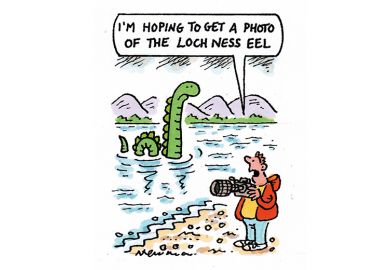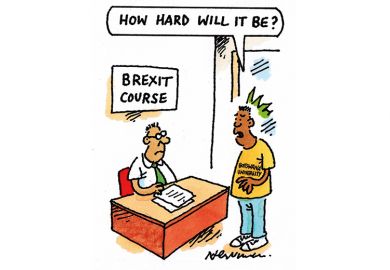
A prolific book thief has been jailed for 25 months after he stole more than 7,000 books from three universities in Edinburgh, before selling them online, The Guardian reported on 18 September. Darren Barr is believed to have made more than £30,000 by selling the textbooks through online book-markets during an 11-month crime spree from October 2017. His thefts came to light after a PhD student at Edinburgh Napier University tried to borrow a textbook from the university library but found none were available. She bought that book and another on Amazon from WeBuyBooks and discovered that both had originated from Napier’s library.
University league tables are arriving thick and fast at the moment, but The Sun still found space to profile one of the more obscure ones – a table showing “universities where students are most at risk of sexually transmitted diseases”. Heading the list of “STI Uni Hotspots” is the University of South Wales, although the Russell Group kept up their usual domination of domestic rankings with four institutions placed in the top 10 thanks to the strong performance of Durham, Exeter, Southampton and Leeds universities. The unusual ranking, published on 19 September to mark the start of freshers’ week, was based on a poll of 1,001 students by online pharmacy Zava at the UK’s 50 biggest universities, as well as information provided online about sexual health and the opening hours of clinics. It found that 33 universities did not have sexual-health clinics open at weekends and that just 12 opened their clinics in the evenings, meaning that “students [who] have little free time between their lectures Monday to Friday struggle to find an opportunity to seek help”.
The president of the University of California system, Janet Napolitano, is stepping down from what many see as the most demanding job in global higher education, Inside Higher Ed reported on 19 September. The former secretary of homeland security under President Obama and two-term governor of Arizona has said she will leave in August 2020, having led the 10-campus system since 2013. She increased enrolment above planned growth, advocated for immigrant and first-generation students, and worked to expand affordable solutions for hungry or homeless students. Ms Napolitano has also clashed frequently with the Trump administration, filing a federal court action against her old department in 2017 in defence of students covered by the Deferred Action for Childhood Arrivals programme.
Debates over the use of university rankings and the prestige of so-called elite institutions were reignited this week, as new research suggested that employers were using a “tick-box” system to filter potential new recruits based on the league table position of their universities. The study, from recruitment firm Milkround, found that four-fifths of Russell Group graduates entered full-time work within weeks of graduating, compared with two-thirds of those from other institutions, the BBC reported on 18 September. Georgina Brazier, a graduate jobs expert at Milkround, said businesses were missing out on the chance to recruit some “fantastic grads from other universities”.
A controversial Australian climate-sceptic academic is asking supporters to donate another A$1.5 million (£818,000) to fund his legal costs after his former employer appealed an unfair-dismissal ruling. Peter Ridd, who argues climate change is not a significant threat to the Great Barrier Reef, was awarded A$1.2 million in compensation from James Cook University after the federal court found his employment rights had been breached, The Guardian reported on 23 September. But his payout has now been frozen in a trust account after the Queensland university lodged an appeal, citing “errors in law”, although A$215,000 has been made available for his legal costs, the paper said. Dr Ridd’s crowdfunding campaign has collected more than A$350,000, with the marine physicist claiming the public donations “send a powerful message to governments about what the public expect of our universities”. His case has inevitably become a lightning rod for debate on academic freedom. However, the trial “was purely and simply about the proper construction of a clause in an enterprise agreement”, said circuit judge Salvatore Vasta in April.
Register to continue
Why register?
- Registration is free and only takes a moment
- Once registered, you can read 3 articles a month
- Sign up for our newsletter
Subscribe
Or subscribe for unlimited access to:
- Unlimited access to news, views, insights & reviews
- Digital editions
- Digital access to THE’s university and college rankings analysis
Already registered or a current subscriber?



